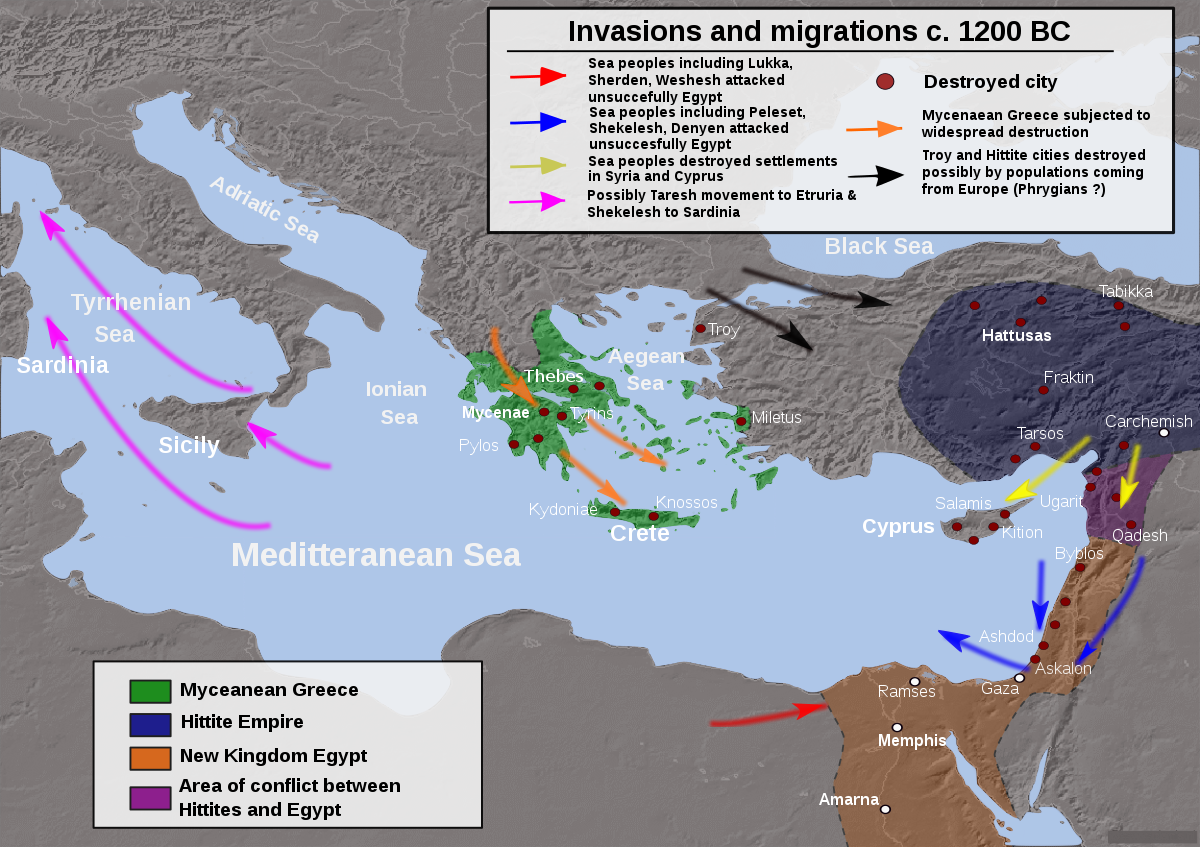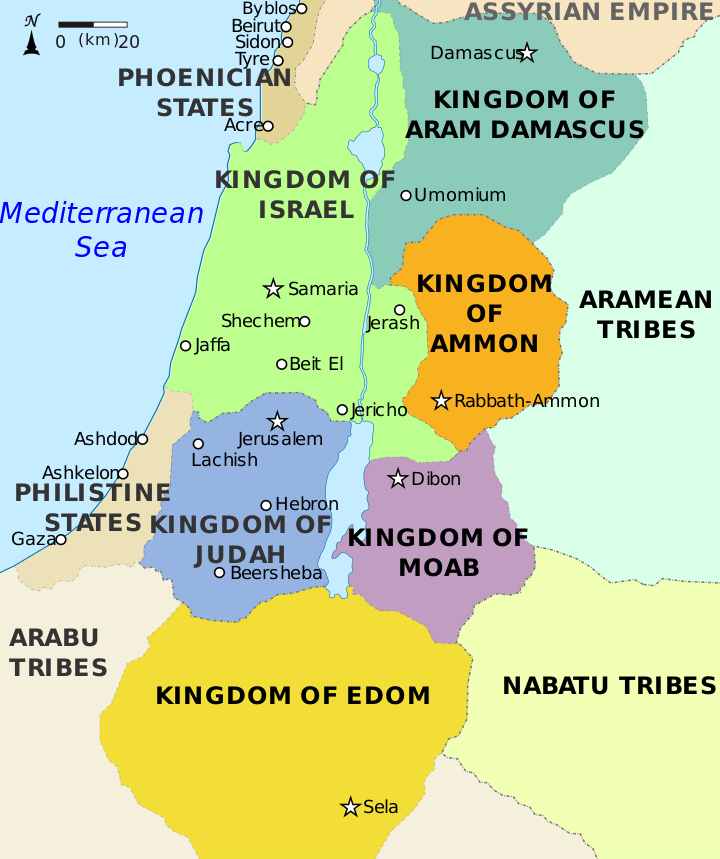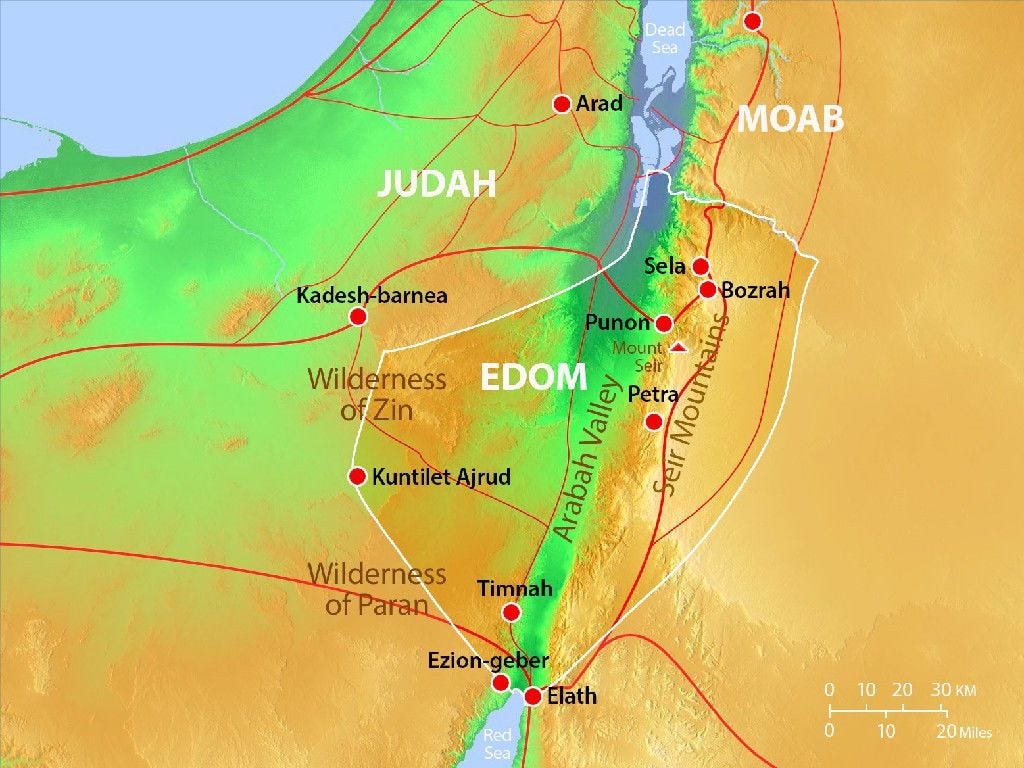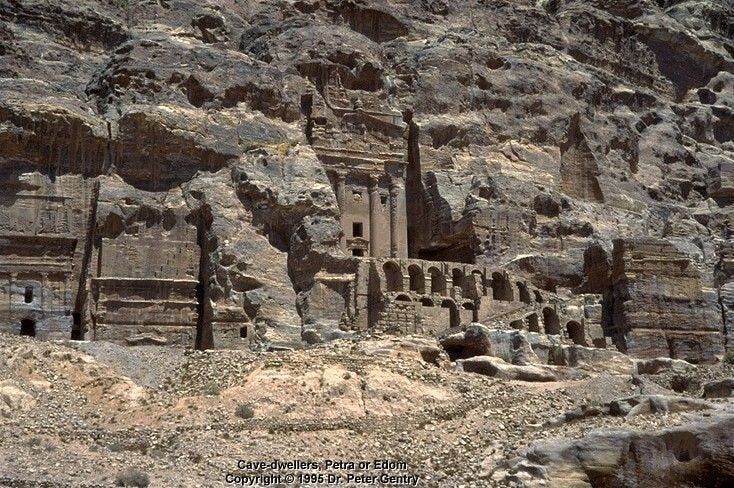Like many peoples throughout history, the biblical authors had a habit of speaking ill of the neighboring people, referring to them as simple-minded Edomites, constantly-complaining Poles, or crime-bringing Mexicans.
Let’s focus on the Edomites, who deserve better than being relegated to an archaic stereotype. Who were they? Where did they live? How did they live? Why did the ancient Hebrews look down on them?
Catch our episode on the topic:
The Genesis of the Edomites
The rise of the Edomites came under the same circumstances as that of other Levantine people, after the Late Bronze Age Collapse. The Bronze Age Near East saw the accumulation and consolidation of power by a handful of empires.
But in the 12th century BCE, these powerful kingdoms collapsed, and an ancient world turned to ashes.
Since power knows no vacuum, and in disaster comes opportunity, smaller communities came out of these ashes and laid their claim: folks like the Philistines, the Israelites, and also - the Edomites.
Edom was a desert kingdom that came up before the collapse and lasted up to the next Levantine disaster, the Babylonian conquests of the 500s BCE. An ancient world was in ashes, again.
Suckers of Biblical Proportions
The Edomites, their culture, and religion sank into obscurity, and all that remained was what their neighbors wrote about them. Angry and petty neighbors at that. The biblical account in Genesis about their supposed forefather, Esau, the first-born twin son of Isaac, paints the Edomites as stupid barbarians.
“And when her [Rebecca’s] days to be delivered were fulfilled, behold, there were twins in her womb. And the first came out red, all over like an hairy garment; and they called his name Esau… and Esau was a cunning hunter, a man of the field; and Jacob was a plain man, dwelling in tents…
“And Esau said to Jacob, Feed me, I pray thee, with that same red pottage; for I am faint… And Jacob said, Sell me this day thy birthright. And Esau said, Behold, I am at the point to die: and what profit shall this birthright do to me?… and he sold his birthright unto Jacob. Then Jacob gave Esau bread and pottage of lentiles… thus Esau despised his birthright.”
(Genesis, chapter 25, verses 24-34)
The Edomites get the privilege of being born out of the second Hebrew patriarch, Isaac, but the first thing the proto-Edomite does is give away his birthright for a lentil stew, which survives in Hebrew to this day as an abysmal deal. Seems that when they are under pressure, the Edomites cave quickly, according to the racist ancient Hebrews.
Two chapters later Esau snoozes and loses again. Nearing death, his dad asks him to prepare him a meal in return for his blessing, but Jacob and the twins’ mom, Rebekah, concoct a plan to dupe the elderly and blind Isaac into believing that Jacob is Esau, and giving him the blessing instead. The plan works, much to the Edomite’s chagrin. He cries about it, which is another hurtful stigma the Edomites have had to deal with for millennia.
A Copper-Mining, Caravan-Carrying Kingdom
So the bible tells us that the Edomites are wild, animalistic in their instincts, and are prone to be slow or to make bad deals. And good deals have been, and still are, of extreme importance to Hebrews
It’s a peculiar stereotype, considering that they had copper industries and were proficient in trade throughout the desert. Tradespeople are rarely so easily fooled, and without making “good deals” they hardly could have survived as a kingdom for 600 years in the cut-throat environment of the Ancient Near East.
The Edomite kingdom was integral in the caravan trade between Egypt to the south, the Levant to the west, the Arabian peninsula, and Mesopotamia to the south and east. In fact, if you check out these two maps you can see how it was literally in the way of a lot of the Asian-African trade.
Since they had little arable land outside of what is today the Arabian Valley, the Edomites put a high premium on wheeling and dealing. Eventually, they went into the sea trade business, all the way to India, from a port where Eilat (Israel) and Aqaba (Jordan) now are.
Since they had a footing in the Dead Sea, they probably exported salt and temple incense. They also carried Gazan perfume east.
But the Edomites had a specialty other than trade. They had copper, and they mined it religiously and efficiently.
Mesopotamian Influences, Again
It seems that the contrast between the more refined and savvy sedentary Jacob and the wild impulsive Esau is in fact related to the contrast between two of the most famous Mesopotamian heroes: Gilgamesh and Enkidu. Gilgamesh is a cultured city person, while Enkidu, and Esau, are animal-like. There’s even a fighting scene in the epic that lasts all night until Gilgamesh and Enkidu realize they are evenly matched, and this closely matches Jacob’s later all night scuffle with “a person”, who is maybe an angel or a deity.
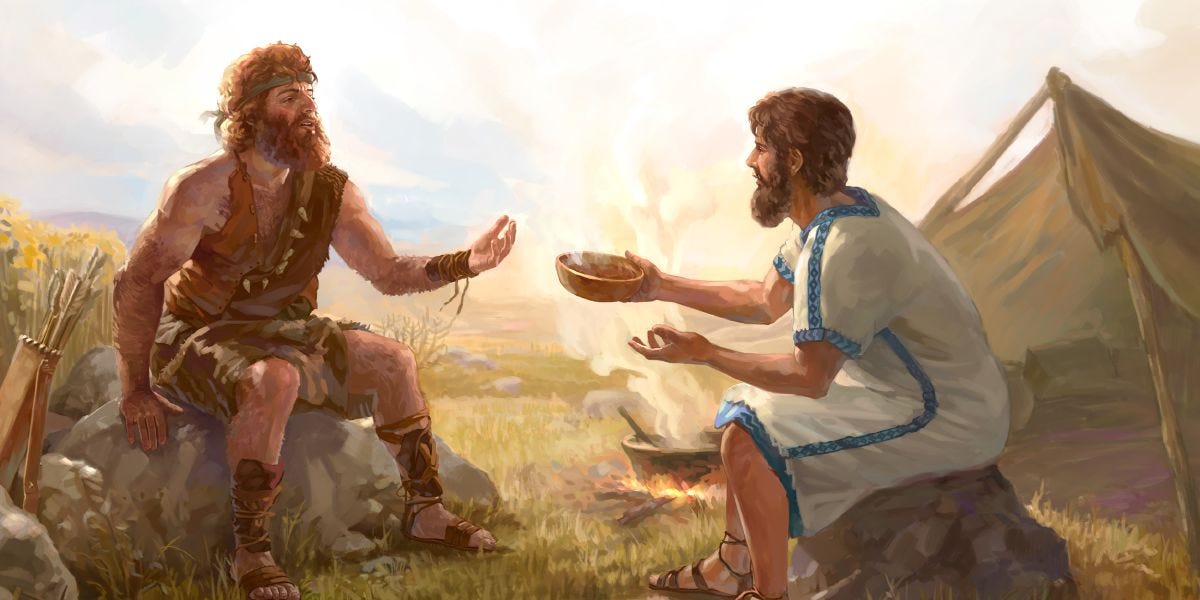
That might be a stereotype that the urban people of ancient Israel, the descendants of Jacob, who is named “Israel”, had against the desert-dwelling Edomites, or it might just be part of the overall smearing of neighbors in the bible.
Get all our episodes on our website:





